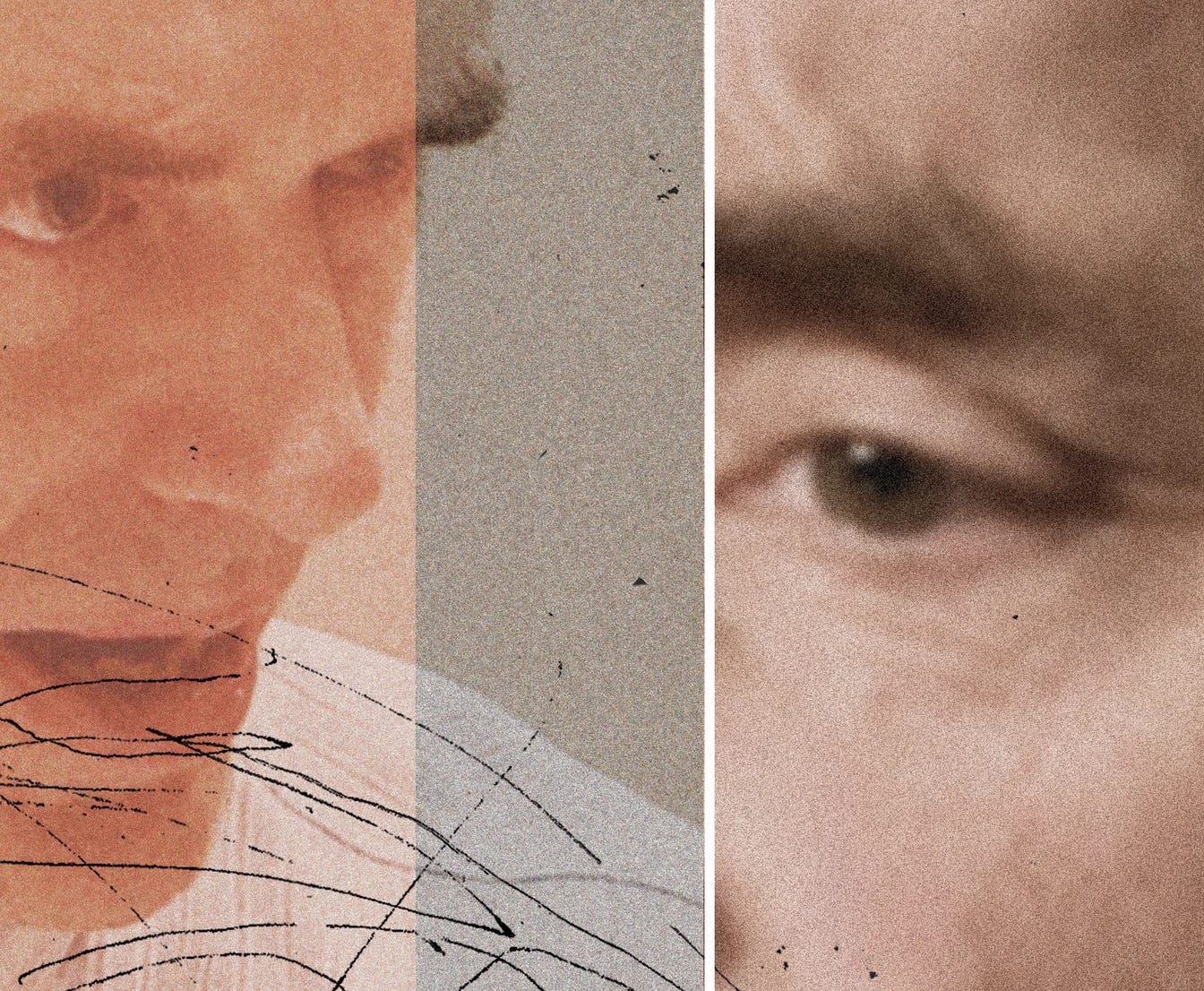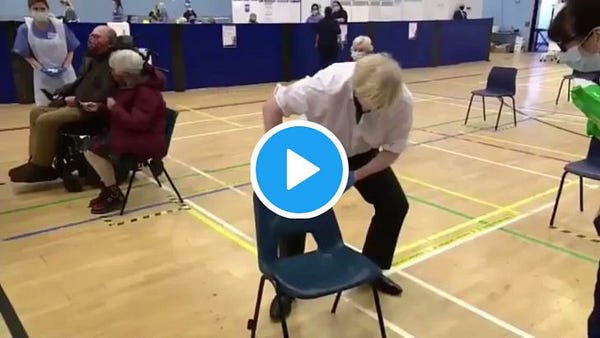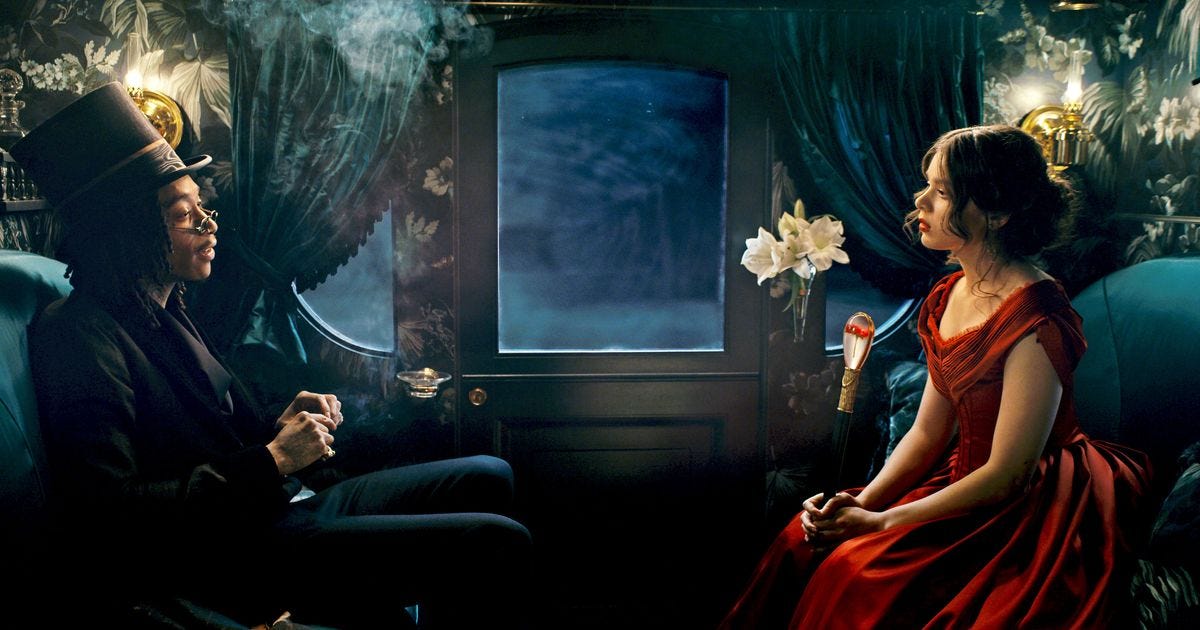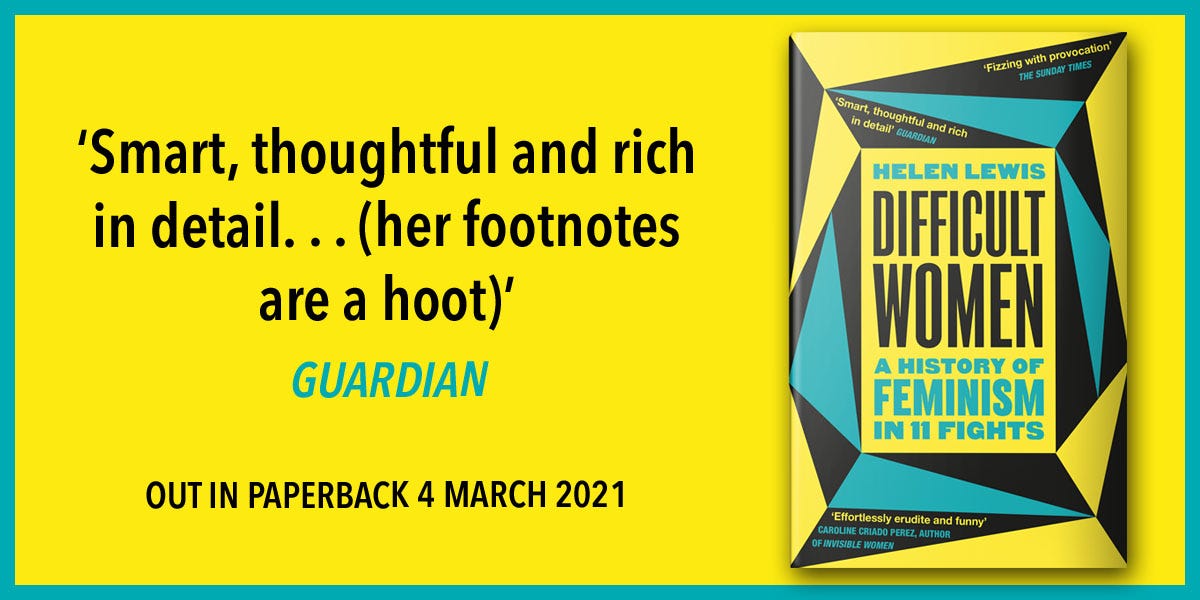Happy Friday!
Thanks to everyone who replied to last week’s special newsletter on It’s A Sin. One thing which several correspondents noted is that the series was cut from eight episodes to five, quite late in the process, and that probably affected the balance of the storylines and characters within it.
Helen
How The Culture War Ate Jordan Peterson (The Atlantic)
The Peterson of Beyond Order, that preacher of personal responsibility, dances around the question of whether his own behavior might have contributed to his breakdown. Was it really wise to agree to all those brutal interviews, drag himself to all those international speaking events, send all those tweets that set the internet on fire? Like a rock star spiraling into burnout, he was consumed by the pyramid scheme of fame, parceling himself out, faster and faster, to everyone who wanted a piece. Perhaps he didn’t want to let people down, and he loved to feel needed. Perhaps he enjoyed having an online army glorying in his triumphs and pursuing his enemies. In our frenzied media culture, can a hero ever return home victorious and resume his normal life, or does the lure of another adventure, another dragon to slay, another “lib” to “own” always call out to him?
Either way, he gazed into the culture-war abyss, and the abyss stared right back at him. He is every one of us who couldn’t resist that pointless Facebook argument, who felt the sugar rush of the self-righteous Twitter dunk, who exulted in the defeat of an opposing political tribe, or even an adjacent portion of our own. That kind of unhealthy behavior, furiously lashing out while knowing that counterattacks will follow, is a very modern form of self-harm. And yet in Beyond Order, the blame is placed solely on “the hypothetically safe but truly dangerous benzodiazepine anti-anxiety medication” he was prescribed by his family doctor. The book leaves you wishing that Peterson the tough therapist would ask hard questions of Peterson the public intellectual.
I decided that I might as well use my encyclopaedic knowledge of the Peterson oeuvre to write about his latest book, and the terrible lure—and terrible price—of winning at the attention economy. Not everyone was a fan, of course.
Writer's blockdown: after a year inside, novelists are struggling to write (Guardian)
If the first lockdown was about finding space to write (along with a blitz spirit and a Tesco delivery slot), then the second has been far bleaker and harder for creativity. Whether it is dealing with home schooling, the same four walls, or anxiety caused by the news, for many authors, the stories just aren’t coming.
“Stultified is the word,” says Orange prize-winning novelist Linda Grant. “The problem with writing is it’s just another screen, and that’s all there is … I can’t connect with my imagination. I can’t connect with any creativity. My whole brain is tied up with processing, processing, processing what’s going on in the world.”
Grant describes waking up in a fog, and not wanting to do anything but watch rubbish TV. Her mind is not relaxed enough, she says, to connect with her subconscious. “My subconscious is just basically screaming: ‘Get us out of this’,” she says, so there’s no space to create fiction.
This article made me feel much better about my current predicament, where writing feels like jogging through wet sand. Like other people who can WFH, I’m aware of how lucky I am, but I also keep thinking about something a friend said: everyone is living through the worst possible lockdown for them.
Britney Spears Was Never In Control (The Cut)
Like Britney Spears, I was professionally photographed, lying across the bed in my childhood bedroom, when I was a teenager. I had been 18 for a month. The shoot was by a male photographer for a fashion magazinethe summer between my high-school graduation and my move to New York to star in the play This Is Our Youth. In the photo, I am lying on my side with my head propped up on my hand and wearing a vintage houndstooth romper my friend had just given me, my arms and legs bare. My head is tilted down, and I’m pouting, with heavily lined eyes and straightened blond hair. I don’t remember feeling uncomfortable in the moment; I don’t remember how the location or pose was decided; I don’t even remember what the photographer looked like. If anyone who was there told me the whole setup was my idea, I would believe them. I remember that the romper had symbolized, for me, my new life starting, and it’s very likely I was eager to update my public image as a sexually active being after extensively documenting an adolescence where I favored bulky layers and granny glasses.
Tavi Gavinson—who was running her own magazine at 15—reappraises her experiences of being a teenage girl in the public eye after watching Framing Britney Spears. “In the flurry of recent Britney Spears commentary, I thought of a few men who would be relieved to learn that it is considered anti-feminist and sex-negative to suggest that there is anything dubious about sexualizing teenagers.”
PS. I don’t think the documentary itself is worth watching, in case you were wondering. It is just some decent talking heads from the NYT, some peripheral interviewees from the Britneyverse, and some archive footage of paparazzi behaviour that makes you think that you’d probably have smashed up their cars with an umbrella, too.
Quick Links
“The blog started, as so many anonymous online projects do, as vengeful public shaming masquerading as social criticism. . . My most popular posts tended to be about women — which makes sense, because the celebrity press tends to be more critical of them.” The author of Your Fave Is Problematic unmasks herself, and reveals the personal pain that drove her desire to do callouts. (NYT)
Kermit sings Once In A Lifetime (Twitter).
“Consider the first season’s finale, which weaves between Sue and Austin’s wedding—a traumatic event for Emily—and a dream sequence in which Emily attends her own funeral. Death is there, and a recently deceased man that Emily loved, and a character from her fascicles, or self-bound books. Billie Eilish’s voice drifts in. Death pours himself a glass of whiskey and announces that they have gathered to say goodbye to “some basic bitch.” Emily interrupts to ask if Death is open to hearing feedback on his eulogy.” This New Yorker profile of the Dickinson showrunner makes me think I will either LOVE or HATE Dickinson. Excited to find out which it is.
‘“We used to joke, don’t let a rich student report you, because if you do, you’re gone,” said Mark Patenaude, a janitor.’ This story from the NYT made me think that, when covering culture war controversies, we need to hear more from the metaphorical janitors. (For the other side, here is an interview with the student involved.)
This debunked something I had assumed to be true: that the Tuskegee study influenced Black Americans’ vaccine hesistancy.
“Men learn optimization, life hacks, the power of thinking without thinking: four-hour work weeks and other highly effective habits that are meant to help them build upon their innate perfection, like a software upgrade. Women, on the other hand, have faulty wiring that needs ripping out.” Why social justice feels like self-help to privileged women. (Tablet)
“There are glimmers of light for gloomsters. Amsterdam has taken over as Europe’s share-trading capital? Tell me more. Lorry delays and export nightmares? Give it to me neat. But everywhere we look there are questions without easy answers. Does Ed Davey deserve some credit? Is Matt Hancock not the literal devil? Is the UK actually… good?” Very funny column on how Britain being competent for once has brutally upset FBPE Twitter. My least Twitter-friendly opinion is that Matt Hancock has done a good job, when benchmarked against either the Cabinet as a whole or the median person faced with being health secretary in a global pandemic. Don’t worry, I’ll see myself into the stocks.
“I have a WhatsApp group of friends, we were at school together. We are all in good jobs, we’re GPs, lawyers, lecturers. In every single scenario, it’s the mothers doing it all. Whatever the setup is, the husband gets away with less. You hear: ‘My husband is self-employed, so he won’t get paid if he doesn’t work, so I’ll do the home school.’ But also: ‘I’m self-employed, so I can be flexible, I’ll do the home school.’ ‘My business folded due to the lockdown so I can home school.’ But also: ‘My husband lost his job, so he needs to look for work.’ What’s going on?” (Guardian)
“The skulls of people scored as being in “great” or “obvious” need of orthodontic treatment made up 36 percent of the medieval sample and 65 percent of the modern sample.” Sorry but I’m obsessed with our tiny modern jaws.
Happy paperback publication week to Difficult Women, which is now a steal at £8. If you want a signed copy, hit reply and we’ll sort it out.










Hi - would love to get hold of a signed copy of your book if possible please?